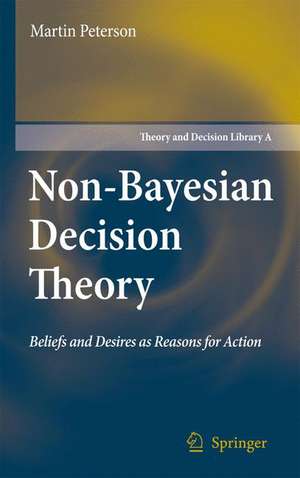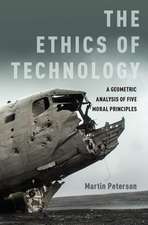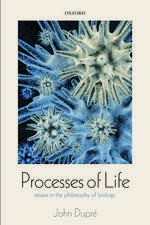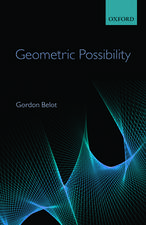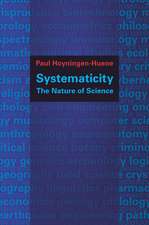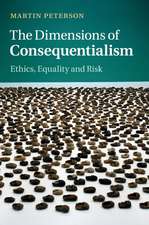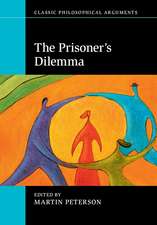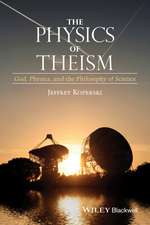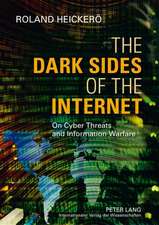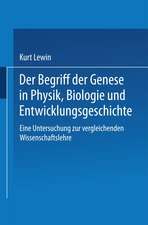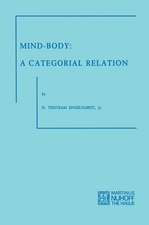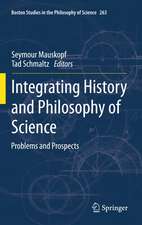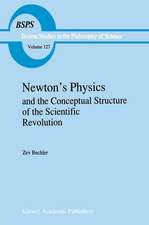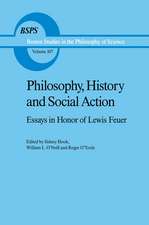Non-Bayesian Decision Theory: Beliefs and Desires as Reasons for Action: Theory and Decision Library A:, cartea 44
Autor Martin Petersonen Limba Engleză Hardback – 22 iun 2008
| Toate formatele și edițiile | Preț | Express |
|---|---|---|
| Paperback (1) | 634.68 lei 6-8 săpt. | |
| SPRINGER NETHERLANDS – 18 noi 2010 | 634.68 lei 6-8 săpt. | |
| Hardback (1) | 640.88 lei 6-8 săpt. | |
| SPRINGER NETHERLANDS – 22 iun 2008 | 640.88 lei 6-8 săpt. |
Din seria Theory and Decision Library A:
- 18%
 Preț: 952.40 lei
Preț: 952.40 lei -
 Preț: 382.57 lei
Preț: 382.57 lei - 18%
 Preț: 958.25 lei
Preț: 958.25 lei - 18%
 Preț: 949.23 lei
Preț: 949.23 lei - 18%
 Preț: 1232.09 lei
Preț: 1232.09 lei - 15%
 Preț: 643.34 lei
Preț: 643.34 lei - 18%
 Preț: 948.92 lei
Preț: 948.92 lei - 15%
 Preț: 581.79 lei
Preț: 581.79 lei - 15%
 Preț: 644.49 lei
Preț: 644.49 lei - 15%
 Preț: 642.83 lei
Preț: 642.83 lei -
 Preț: 389.70 lei
Preț: 389.70 lei - 18%
 Preț: 947.67 lei
Preț: 947.67 lei - 15%
 Preț: 641.20 lei
Preț: 641.20 lei -
 Preț: 388.90 lei
Preț: 388.90 lei - 15%
 Preț: 640.37 lei
Preț: 640.37 lei - 18%
 Preț: 952.26 lei
Preț: 952.26 lei - 15%
 Preț: 641.20 lei
Preț: 641.20 lei - 18%
 Preț: 953.35 lei
Preț: 953.35 lei - 18%
 Preț: 952.89 lei
Preț: 952.89 lei - 18%
 Preț: 951.47 lei
Preț: 951.47 lei - 15%
 Preț: 636.94 lei
Preț: 636.94 lei - 18%
 Preț: 944.82 lei
Preț: 944.82 lei - 15%
 Preț: 643.84 lei
Preț: 643.84 lei - 18%
 Preț: 1383.81 lei
Preț: 1383.81 lei - 18%
 Preț: 1391.36 lei
Preț: 1391.36 lei - 20%
 Preț: 641.99 lei
Preț: 641.99 lei - 15%
 Preț: 647.40 lei
Preț: 647.40 lei
Preț: 640.88 lei
Preț vechi: 753.97 lei
-15% Nou
Puncte Express: 961
Preț estimativ în valută:
122.63€ • 128.36$ • 102.07£
122.63€ • 128.36$ • 102.07£
Carte tipărită la comandă
Livrare economică 31 martie-14 aprilie
Preluare comenzi: 021 569.72.76
Specificații
ISBN-13: 9781402086984
ISBN-10: 1402086989
Pagini: 180
Ilustrații: VIII, 170 p.
Dimensiuni: 155 x 235 x 11 mm
Greutate: 0.43 kg
Ediția:2008
Editura: SPRINGER NETHERLANDS
Colecția Springer
Seria Theory and Decision Library A:
Locul publicării:Dordrecht, Netherlands
ISBN-10: 1402086989
Pagini: 180
Ilustrații: VIII, 170 p.
Dimensiuni: 155 x 235 x 11 mm
Greutate: 0.43 kg
Ediția:2008
Editura: SPRINGER NETHERLANDS
Colecția Springer
Seria Theory and Decision Library A:
Locul publicării:Dordrecht, Netherlands
Public țintă
ResearchCuprins
Bayesian decision theory.- Choosing what to decide.- Indeterminate preferences.- Utility.- Subjective probability.- Expected utility.- Risk aversion.
Recenzii
From the reviews:
"This book presents an account of rational choice from a non-Bayesian point of view. … this book argues that the non-Bayesian approach offers more action guidance to the decision maker. … the book is well addressed to all researchers in the field of decision theory, and especially those with philosophical concerns." (Vangelis Grigoroudis, Zentralblatt MATH, Vol. 1151, 2009)
“Anyone concerned in the foundations of normative decision theory and who feels puzzled by the way this theory typically proceeds will doubtless welcome Martin Peterson’s Non-Bayesian Decision Theory. … Perterson’s book is written in a clear and pleasant style, is well organized and shows an impressive mastery of both formal models and conceptual issues pertaining to contemporary decision theory. … Its reading will be valuable to every scholar – philosopher or economist – interested by decision theory.” (Mikaël Cozic, Economics and Philosophy, Vol. 27, 2011)
"This book presents an account of rational choice from a non-Bayesian point of view. … this book argues that the non-Bayesian approach offers more action guidance to the decision maker. … the book is well addressed to all researchers in the field of decision theory, and especially those with philosophical concerns." (Vangelis Grigoroudis, Zentralblatt MATH, Vol. 1151, 2009)
“Anyone concerned in the foundations of normative decision theory and who feels puzzled by the way this theory typically proceeds will doubtless welcome Martin Peterson’s Non-Bayesian Decision Theory. … Perterson’s book is written in a clear and pleasant style, is well organized and shows an impressive mastery of both formal models and conceptual issues pertaining to contemporary decision theory. … Its reading will be valuable to every scholar – philosopher or economist – interested by decision theory.” (Mikaël Cozic, Economics and Philosophy, Vol. 27, 2011)
Textul de pe ultima copertă
This book aims to present an account of rational choice from a non-Bayesian point of view. Rational agents maximize subjective expected utility, but contrary to what is claimed by Bayesians, the author argues that utility and subjective probability should not be defined in terms of preferences over uncertain prospects. To some extent, the author’s non-Bayesian view gives a modern account of what decision theory could have been like, had decision theorists not entered the Bayesian path discovered by Ramsey, Savage, and Jeffrey. The author argues that traditional Bayesian decision theory is unavailing from an action-guiding perspective. For the deliberating Bayesian agent, the output of decision theory is not a set of preferences over alternative acts - these preferences are on the contrary used as input to the theory. Instead, the output is a (set of) utility function(s) that can be used for describing the agent as an expected utility maximizer, which are of limited normative relevance.On the non-Bayesian view articulated by the author, utility and probability are defined in terms of preferences over certain outcomes. These utility and probability functions are then used for generating preferences over uncertain prospects, which conform to the principle of maximizing expected utility. It is argued that this approach offers more action guidance.
Caracteristici
First non-Bayesian account of normative decision theory Axiomatisation of expected utility principle does not rely on independence axiom Includes a formal account of the framing of decision problems
